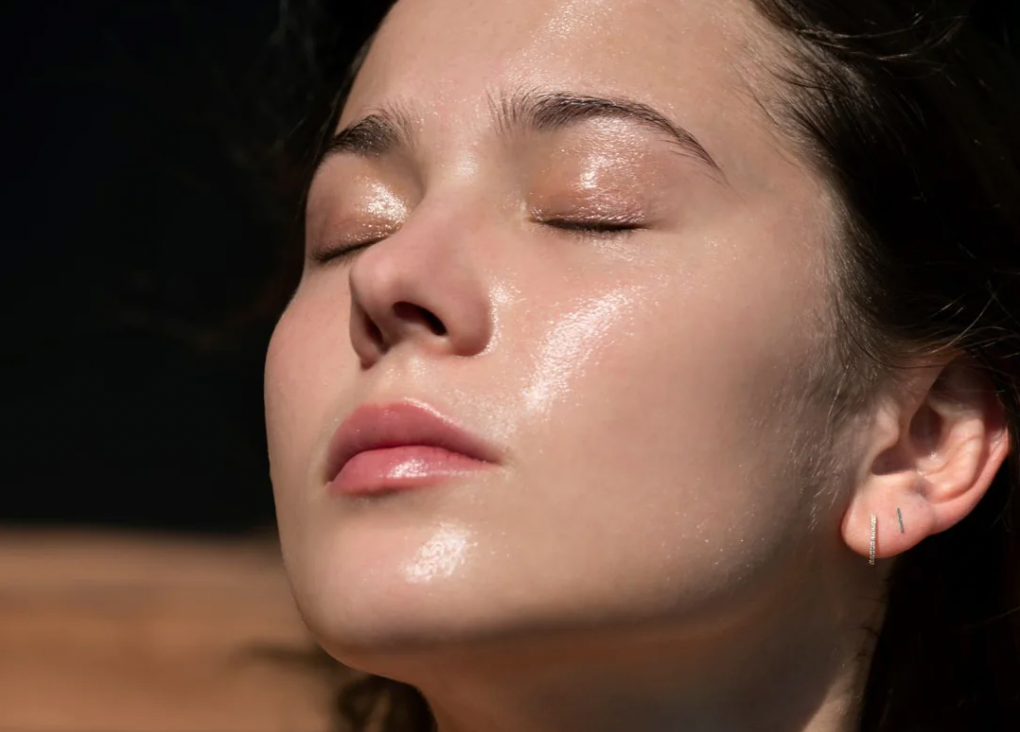At Onda Beauty we spend a lot of time thinking about skin (naturally). And for good reason. The skin is our largest organ, acting as our first line of defense and guarding us from external aggressors. Good skin is also a sign of good health, and the health of our skin is dependent on the skin barrier.
So What is the Skin Barrier?
Technically speaking, the skin barrier refers to the stratum corneum, or the outermost layer of skin, which serves as the body's first line of defense against pathogens and environmental stressors, such as pollution, extreme temperatures, and UV radiation. “Simply put, your skin barrier is the outer surface of your skin,” Tata Harper, founder of Tata Harper Skincare, explains. “Many people like to refer to this layer as a brick wall in which the ‘bricks’ are composed of fatty acids, cholesterol, and ceramides that protect the skin. This ‘wall’ creates a shield that protects skin from harmful bacteria, irritants, chemicals and allergens. The role of the skin barrier is so important for maintaining healthy skin because if this layer is damaged, your skin can’t protect against harmful substances.”
But that’s not where the biology lesson ends: along with keeping harmful irritants, pollutants, and bacteria out, the skin barrier also keeps moisture in, ensuring skin looks and feels supple, plump and, ultimately, hydrated. And there’s more. “The skin barrier contains its own three-part ecosystem made up of the microbiome (the ecosystem of bacteria that lives on the skin's surface), the acid mantle (a thin film on the skin's surface composed of lipids and sweat), and the lipid layer (a combination of lipids, ceramides, and fatty acids), “says Harper. “When all those parts are at their healthiest, the skin barrier is able to function properly in order to keep irritants and environmental stressors out and seal healthy nutrients and moisture in.”
How Can The Skin Barrier Become Damaged?
The skin barrier is not invincible and can become weakened or damaged by a variety of factors including harsh cleansing products, over-exfoliation, environmental stressors, and UV exposure. “Unfortunately, our modern environment isn’t doing us any favors when it comes to supporting a strong skin barrier and we are constantly exposed to ingredients and environments that damage it,” says Harper. “External sources like UV rays, pollution, free radicals, blue light, airborne allergens, weather, and seasonal temperature changes all contribute to weakening your barrier. Then there are lifestyle factors, like stripping cleansers, over-exfoliating, products with harsh chemicals like fragrances, and alcohols that can also deplete your barrier.”
And there’s more. A diet that is low in essential fatty acids and antioxidants can also lead to a weakened skin barrier. Chronic stress and poor sleep can weaken the skin barrier by causing inflammation and disrupting the skin's natural repair processes. And then there is the natural passage of time, whereby our skin barrier naturally becomes weaker with age, making it more susceptible to damage and dehydration.
The result? “There’s a laundry list of skin issues that can result from a damaged skin barrier including itching, dryness, flaking, redness, and inflammation,” says Harper. “Your skin may also start to become sensitive to products you have used frequently, even if they have worked in the past.”
How To Repair The Skin Barrier
Now for the good news: the skin barrier can be repaired and restored. First up, says Harper, eliminate any products with harsh or harmful ingredients. This includes fragrances and alcohol, sulfates, actives such as salicylic and glycolic acid, retinoids, and cut back on exfoliation. Next, consider switching to a gentle oil-based or balm cleanser, as these effectively remove dirt and makeup without stripping the skin of its natural oils.
When choosing products to help heal your skin barrier, look for ones with ceramides, says Harper. “These are the lipids that act as the cement in the ‘brick wall’ of your skin that keep the barrier strong and prevent moisture loss.” Staying moisturized is also a must when repairing a damaged skin barrier, so look for humectant ingredients such as Hyaluronic Acid and Glycerin, which pull moisture into the skin; follow up with an occlusive that locks moisture in, such as Squalane or Argan Oil, which are also rich in fatty acids. Niacinamide and Probiotics such as Streptococcus Thermophilus have also been shown to support the skin barrier.
How To Maintain A Healthy Skin Barrier
Now that you’ve repaired your skin barrier, the goal is to maintain a healthy one.
A major factor in the skin's ability to provide a protective barrier is down to pH. Healthy skin should maintain a pH between 4 and 6, which is mildly acidic (remember the acid mantle Harper referred to earlier?). To keep the skin’s pH within that healthy range, continue to avoid harsh soaps with sulfates and over exfoliation-–both chemical and physical. (For more on how to exfoliate properly click here.)
Supporting the skin microbiome is also essential to a healthy skin barrier, so incorporate some probiotics into your skincare routine to boost your healthy bacteria. Finally, in addition to a regular moisturizing routine that combines humectants and emollients to bolster that lipid layer, always use sunscreen daily to protect your skin from UV radiation, which can damage the skin barrier. Look for broad-spectrum sunscreens that provide protection against both UVA and UVB rays.
Here is our five step skin barrier strengthening routine.
https://ondabeauty.com/products/nourishingoilcleanser
https://ondabeauty.com/products/synbiotic-defense-mist
https://ondabeauty.com/products/hyaluronicseaserum
https://ondabeauty.com/products/biossance-squalane-omega-repair-cream
https://ondabeauty.com/products/mineral-creme-spf-50-broad-spectrum-uva-uvb-sunscreen


